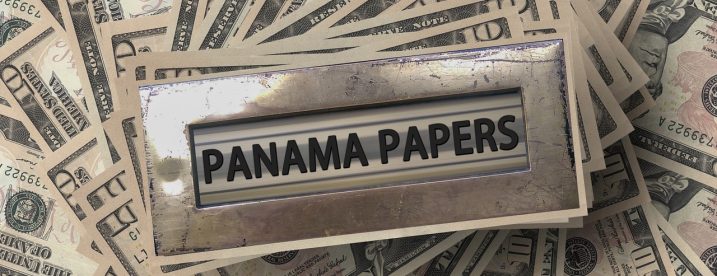By Lakshmi Kumar, June 12, 2019

The relationship between anonymous companies, corruption, money laundering, drug and weapons trafficking, organized crime and terrorist financing isn’t new. Studies from the Organization for Economic Co-operation & Development (OECD) from nearly two decades ago identified that nearly...
Transnational crimes generate US$1.6 trillion to US$2.2 trillion annually In 2017, Global Financial Integrity (GFI) did a study on transnational crime and found that the combined annual value of 11 different transnational criminal markets was between US$1.6...
By Tom Cardamone, April 3, 2017

Believe it or not, the Panama Papers scandal has an upside: it shed light on the dark corners of the international financial system. Prior to the revelation that one law firm helped establish over 200,000 anonymous companies, the casual observer knew tax evasion, corruption, and money laundering occur in the world but they didn’t know quite how it works. Now the term “anonymous shell company” has some resonance and it is in the general lexicon — even if most people still can’t explain how they work.
By Heather Lowe, April 18, 2016

The global community recently began implementing a system of transparent, open source ID numbers—Legal Entity Identifiers (LEI)—to help companies, regulators, investors, and the public see how parent and subsidiary companies are related. Global Financial Integrity has been supportive of this corporate transparency tool, and I participated in the early stages of creating the new global LEI system. To test out and demystify the new system, I decided to have GFI register to get its own LEI number. Ten minutes and US$219 later we were done, and now I’m going to explain just how easy the process was.

“ICE has long recognized the misuse of corporations and limited liability companies (LLCs) formed under State law as a serious threat to the ongoing effort to combat international criminal activities. The lack of corporate transparency has allowed...
By Christine Clough, PMP, October 26, 2015
When the States Parties to the UN Convention against Corruption (UNCAC) and official observers gather in St Petersburg next week for the 6th Conference of States Parties (COSP), the UNCAC Coalition will be advocating for enhanced language...
By Sophie Haggerty, June 15, 2015

Other Countries Should Follow Norway’s Example
On June 5, the Norwegian Parliament unanimously voted to establish a public registry of corporate ownership information, becoming the latest country to tackle the abuse of anonymous companies through increased transparency.
Anonymous companies are one of the top tools used by criminals, kleptocrats, tax evaders, and terrorists to launder dirty money with impunity. Requiring companies to publicly disclose in a central registry their ultimate, human, beneficial owner(s) is regarded as the gold standard in tackling the abuse of these phantom firms.
Norway’s strong endorsement of transparency comes as no big surprise: the Scandinavian country routinely ranks near the top of transparency and anti-corruption rankings, and Norway was the first country to get behind the push to curb illicit financial flows. Their support on this topic dates back to the formation of the Norwegian Government-led Task Force on the Development Impact of Illicit Financial Flows in 2007 and their financial backing of the Financial Transparency Coalition at its inception in early 2009–long before illicit flows topped the global agenda.
In establishing a public registry, Norway joins Denmark and the United Kingdom—the first country to commit to a public registry of beneficial ownership information back in October 2013. The UK followed through with its commitment this March by passing historic legislation needed to fulfill its pledge.
By Heather Lowe, June 2, 2015

GFI’s Heather Lowe Proposes Reinvesting FIFA Forfeiture Funds in Inner-City Youth Soccer Programs
Following from my blogs on Friday and Monday about different aspects of the FIFA case, I’d like to talk a little bit about the forfeiture funds and penalty payments that the U.S. Department of Justice (DOJ) will be collecting in this case and what will happen to them. A proceeding like the FIFA case can result in a really large pile of cash that will be under DOJ control. Unless the Defendants are acquitted of the charges against them at trial or the DOJ decides to drop the case against a Defendant for some reason, we can expect that the DOJ will be collecting from those Defendants the bribe money that they received, anything they bought with that money that will then be auctioned off (for example, check out the list of real estate that will likely go under the hammer in Florida and Georgia from paragraph 343 of the indictment), and, possibly, additional fines in the form of penalties. It is going to add up.
Recouping Expenses
It is obviously critical that the DOJ, Federal Bureau of Investigation (FBI), Internal Revenue Service (IRS) and other government agencies that were involved in this case are able to recoup the money they spent working on this investigation over the past few years. Another way of looking at it is that they need to keep a sizable chunk in order to ensure that they have the resources to work cases like this over the next few years. No matter how you slice it, that’s important to American taxpayers as well, who pay less in taxes because the DOJ and other agencies are able to fund part of their work through forfeiture and penalty payments instead of through tax dollars. Win-Win.






